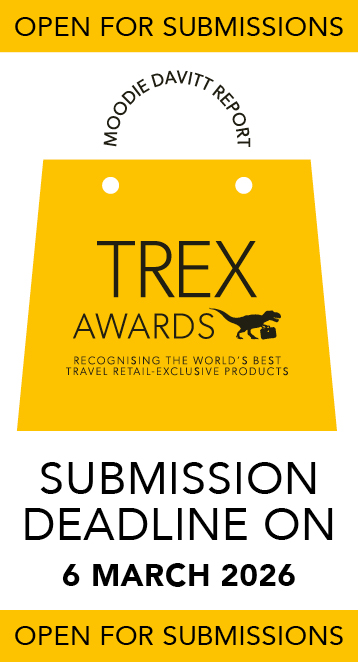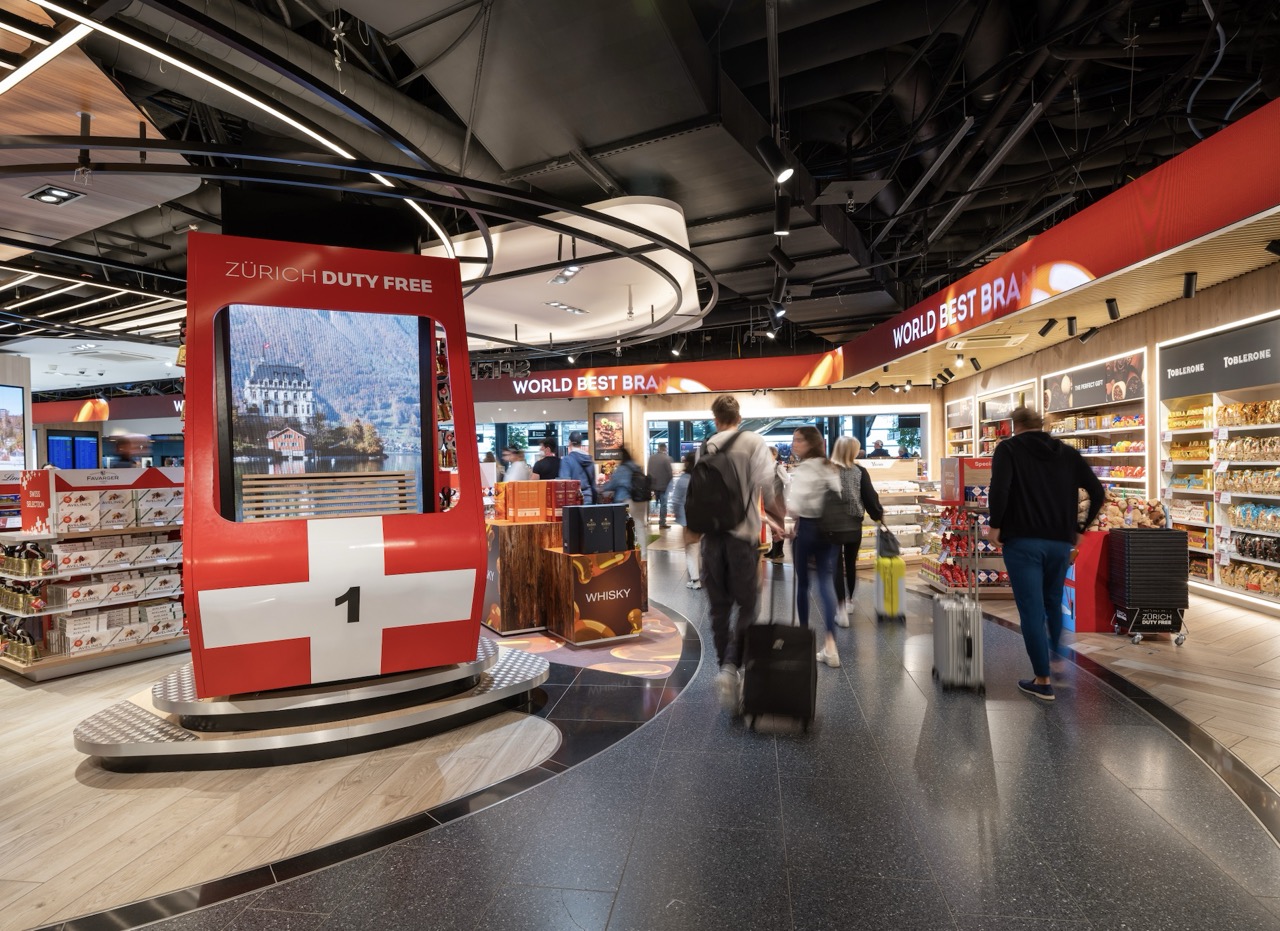EUROPE. The ETRC’s drive to encourage digital labelling to communicate information and health warnings to travelling consumers has gained recent momentum, according to Secretary General Julie Lassaigne.
In a potentially key development, the European Commission has launched a consultation about the labelling of fragrance allergens in cosmetic products. It has invited the ETRC as one of a select group of stakeholders to offer input.
The Commission is considering amending the EU Cosmetics Regulation by adding 62 contact allergens to the current list of 26 substances that must be listed on-pack on all cosmetics products sold in the EU today. To help it achieve its goals of communicating the vastly increased list of ingredients to consumers, the Commission is considering both on-pack labelling and digital labelling options.

As reported, in late 2018 the ETRC piloted the use of smartphone technology to test its digital labelling solution in a trial with Gebr Heinemann at Hamburg Airport. Customers could visit the ETRC website and then scan the barcodes of ten items commonly purchased in duty free, including alcohol, food & confectionery and perfumes & cosmetics.
This ensured that they could read detailed product information required by EU regulations without the need for packaging to be covered in text.
Lassaigne said: “A few weeks ago, ETRC formally contributed to the consultation of the Commission to present ETRC’s work on labelling, the impact of labelling requirements in the P&C category in travel retail, and the results of the ETRC pilot project to create a digital multilingual platform for information to consumers in duty free and travel retail.
“The position of ETRC is very clear: Should the Commission introduce the obligation to label additional 62 fragrance ingredients on cosmetics products in the EU, ETRC advocates for digital labelling as the way forward for the duty free and travel retail industry. Mandatory information can be provided in a consumer-friendly format to comply fully with regulatory requirements, while enabling our channel to continue to thrive.”
The ETRC, she noted, is positioning itself as one of the leading EU trade associations providing expertise on digital labelling. It will be lobbying the next Commission to enact legislation that formally allows for product information to be provided by means other than on the physical package. This will help “better inform consumers in the digital age,” said Lassaigne, and would hopefully apply not only to P&C but across all major product categories.
In related news, the ETRC’s technology, and its possible use in food labelling, was highlighted at a meeting in May of the Codex Committee on Food Labelling in Ottawa, Canada. Jointly established by the Food and Agriculture Organization of the United Nations (FAO) and the World Health Organization (WHO), Codex Alimentarius sets up internationally recognised standards, codes of practice, guidelines and other recommendations relating to foods, food production and food safety.

The discussion paper (prepared by Canada) for the agenda highlights the ETRC digital platform pilot as one of the four initiatives listed at global level. It noted that the ETRC “digital platform is being piloted to provide information in many languages to consumers in duty free and travel settings, by means of barcode scanning using a smart phone or in-store scanners”.
Lassaigne said: “This acknowledgement in a UN agency paper not only represents a fantastic achievement for ETRC but most demonstrates the benefits of our initiative, which is getting traction among policy-makers.”
As reported, there is opposition to digital labelling among health NGOs and some consumer organisations, but the ETRC is determined to convince legislators of the duty free and travel retail industry’s special status, and that policies appropriate to domestic markets are not necessarily appropriate in this channel.
A changing EU political landscape
In other news, the ETRC said that the changing face of the European Parliament and Commission could present challenges to the industry. The European Parliament elections took place in May across all EU member states (including the UK, which is scheduled to leave in October).
Lassaigne said: “The forthcoming months will bring about major change in Brussels, with many old faces in the European Parliament and European Commission being replaced by those with little to no knowledge of the duty free and travel retail industry. This happens every five years and ETRC is well used to building new relationships.
“As expected, the new Parliament will be more colourful than ever before, with the traditional centre-right and centre-left parliamentary groups losing their combined majority in favour of the Liberals, Greens and far-right parties. The duty free industry will therefore have to engage across a much broader spectrum of political groups and Member States.
“Key positions such as the European Commission President, and Commissioners responsible for Internal Market, Taxation, Health and Transport will also be changing at the end of October and the European Parliament must approve each candidate. Again, a lot of work will be required to bring these new individuals up to speed on our key issues.
“ETRC, with the support of our national and regional associations, will be active on the ground in Brussels to ensure that the influx of new faces understand the unique nature of our business and the issues that affect us, especially on Brexit and product labelling. We’ll also be making our voice heard on new legislation being proposed, such as on airport charges and air passenger rights.”















